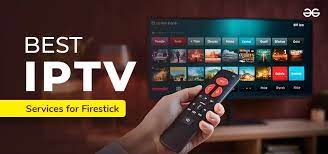In the realm of digital entertainment, iptv france (Internet Protocol Television) has emerged as a revolutionary technology, transforming how we consume television content. IPTV utilizes internet protocol networks to deliver TV content, offering viewers an interactive and customizable experience that traditional broadcasting methods cannot match. This article explores the evolution, workings, and benefits of IPTV in today’s media landscape.
Evolution of IPTV
IPTV has its roots in the early 1990s when the internet started gaining popularity. Initially, it was limited by the available bandwidth and technology infrastructure. However, advancements in broadband internet and streaming protocols in the 2000s paved the way for its widespread adoption. Today, IPTV services are provided by telecommunications companies, broadcasters, and new-age content providers, leveraging high-speed internet connections to deliver high-quality video and multimedia content directly to consumers.
How IPTV Works
Unlike traditional broadcast and cable television, which transmit content through radio waves or cables, IPTV delivers media content using internet protocol (IP) networks. Here’s how it typically works:
- Content Acquisition: Content providers acquire TV programs and videos from multiple sources, including live broadcasts, on-demand libraries, and digital archives.
- Encoding: The acquired content is encoded into a digital format suitable for transmission over IP networks. This process ensures that the content maintains high quality and is compatible with various devices.
- Content Delivery: IPTV services use IP networks (such as broadband connections) to deliver the encoded video streams to subscribers’ devices. This can include smart TVs, computers, smartphones, and set-top boxes.
- User Interaction: Viewers can interact with IPTV content in ways not possible with traditional TV. Features like pause and rewind live TV, video-on-demand (VOD), and personalized content recommendations enhance the user experience.
Benefits of IPTV
1. Wide Range of Content:
IPTV offers access to a vast array of content beyond traditional TV channels. Subscribers can enjoy live TV, catch-up TV, movies, series, documentaries, and more, often with options for multiple languages and subtitles.
2. Flexibility and Convenience:
Viewers can watch IPTV content on various devices, from smart TVs to mobile phones, allowing for flexibility in viewing preferences and locations. This convenience is particularly appealing for users who want to watch content on the go.
3. Interactive Features:
IPTV enables interactive features such as video-on-demand (VOD), where users can select and watch content whenever they want. Additionally, interactive TV features, such as voting and polling during live broadcasts, engage viewers in real-time.
4. Cost-Effectiveness:
For consumers, IPTV can be cost-effective compared to traditional cable or satellite subscriptions. Users often have the option to choose packages tailored to their preferences, avoiding paying for channels they do not watch.
5. High-Quality Viewing Experience:
With advancements in video compression and internet speeds, IPTV providers can deliver high-definition (HD) and even ultra-high-definition (UHD) content. This enhances the viewing experience, providing crisp images and immersive audio.
Future Trends
Looking ahead, IPTV is poised to continue evolving with advancements in technology. Key trends include:
- Integration with Smart Homes: IPTV services may integrate with smart home systems, allowing users to control their viewing experience through voice commands or smart devices.
- Enhanced Personalization: Providers are increasingly using AI and machine learning to personalize content recommendations based on viewing habits and preferences.
- 4K and Beyond: As internet speeds improve globally, expect IPTV to offer more content in 4K and beyond, catering to viewers’ demand for higher resolution.
In conclusion, IPTV represents a significant shift in how television content is delivered and consumed. With its flexibility, interactivity, and diverse content offerings, IPTV continues to shape the future of entertainment, offering consumers an enhanced viewing experience tailored to their preferences and lifestyles. As technology advances, IPTV is likely to remain at the forefront of the digital entertainment industry, catering to the evolving needs of viewers worldwide.

